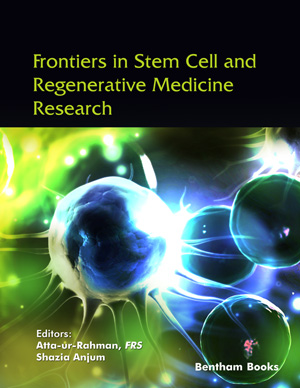
Abstract
Background: Uncontrollable inflammatory response following ectopic engineered cartilage implantation is devastating to the aesthetic and functional outcomes of the recipients. Adipose stem cells (ASCs) have a good immunomodulatory capacity via a paracrine mechanism. However, works of literature are scarce regarding ASC modulation in ectopic engineered cartilage regeneration in vivo. This study aims to explore how ASCs modulate the inflammatory response after engineered cartilage implantation and affect the implants in a nonchondrogenic milieu in large immunocompetent animals.
Methods: Porcine engineered elastic cartilages were cultured in vitro for 3 weeks with chondrocyte cell sheeting technology and then assigned into two groups: ASCs and Control (saline injection). All samples (n= 6 per group) were autologously implanted into different subcutaneous pockets, and a single dose of ASCs was injected at three points around the implant. All samples were harvested after 2 weeks in vivo for analysis.
Results: In the examination of inflammation, we observed reduced inflammatory cell infiltration and improved M2 macrophage polarization in the implanted engineered cartilage with ASC injection compared to the control. There were also enhanced anti-inflammatory cytokines and reduced proinflammatory cytokines inside and adjacent to the implants, while in serum, there were no significant differences. In the examination of the cartilage quality, there were significant increases in cartilage extracellular matrix and chondrogenic factors, and the elastic cartilage phenotype was maintained compared to control.
Conclusion: This study finds that a single dose of ASCs can promote ectopic cartilage regeneration by modulating inflammation and enhancing cartilage matrix synthesis in a porcine model.
Keywords: Adipose stem cells, cartilage tissue engineering, inflammatory modulation, chondrogenesis, porcine model.
Graphical Abstract
[http://dx.doi.org/10.1302/0301-620X.86B8.15609] [PMID: 15568518]
[http://dx.doi.org/10.1038/s41584-019-0255-1] [PMID: 31296933]
[http://dx.doi.org/10.1038/nrrheum.2014.157] [PMID: 25247412]
[http://dx.doi.org/10.1016/j.ebiom.2018.01.011] [PMID: 29396297]
[http://dx.doi.org/10.5966/sctm.2015-0263] [PMID: 27280797]
[http://dx.doi.org/10.1002/term.458] [PMID: 21916014]
[http://dx.doi.org/10.1111/imm.13152] [PMID: 31709535]
[http://dx.doi.org/10.1089/ten.teb.2014.0098] [PMID: 24950588]
[http://dx.doi.org/10.1002/art.24258] [PMID: 19180509]
[http://dx.doi.org/10.3390/ijms22189781] [PMID: 34575945]
[http://dx.doi.org/10.1089/ten.tea.2008.0663] [PMID: 19243242]
[http://dx.doi.org/10.1146/annurev-immunol-032414-112220] [PMID: 25861979]
[http://dx.doi.org/10.1016/j.joca.2007.12.013] [PMID: 18279766]
[http://dx.doi.org/10.1093/pm/pnaa421] [PMID: 33585939]
[PMID: 28597983]
[http://dx.doi.org/10.1186/ar4156] [PMID: 23360790]
[http://dx.doi.org/10.1002/art.34626] [PMID: 22961401]
[http://dx.doi.org/10.3389/fcell.2021.630678] [PMID: 33816478]
[http://dx.doi.org/10.1002/sctm.17-0284] [PMID: 30269426]
[http://dx.doi.org/10.1186/s13287-021-02457-9] [PMID: 34256833]
[http://dx.doi.org/10.1186/s13287-021-02542-z] [PMID: 34419143]
[http://dx.doi.org/10.3389/fimmu.2020.00111] [PMID: 32117263]
[http://dx.doi.org/10.1016/j.joca.2020.01.007] [PMID: 31982565]
[http://dx.doi.org/10.1016/j.biopha.2018.11.099] [PMID: 30551490]
[http://dx.doi.org/10.1016/j.joca.2017.11.007] [PMID: 29169959]
[http://dx.doi.org/10.1016/0014-4827(92)90186-C] [PMID: 1572404]
[http://dx.doi.org/10.1016/0014-5793(88)81327-9] [PMID: 3164687]
[http://dx.doi.org/10.1080/03008200802148355] [PMID: 18661363]
[http://dx.doi.org/10.1016/j.matbio.2018.05.005] [PMID: 29803938]











